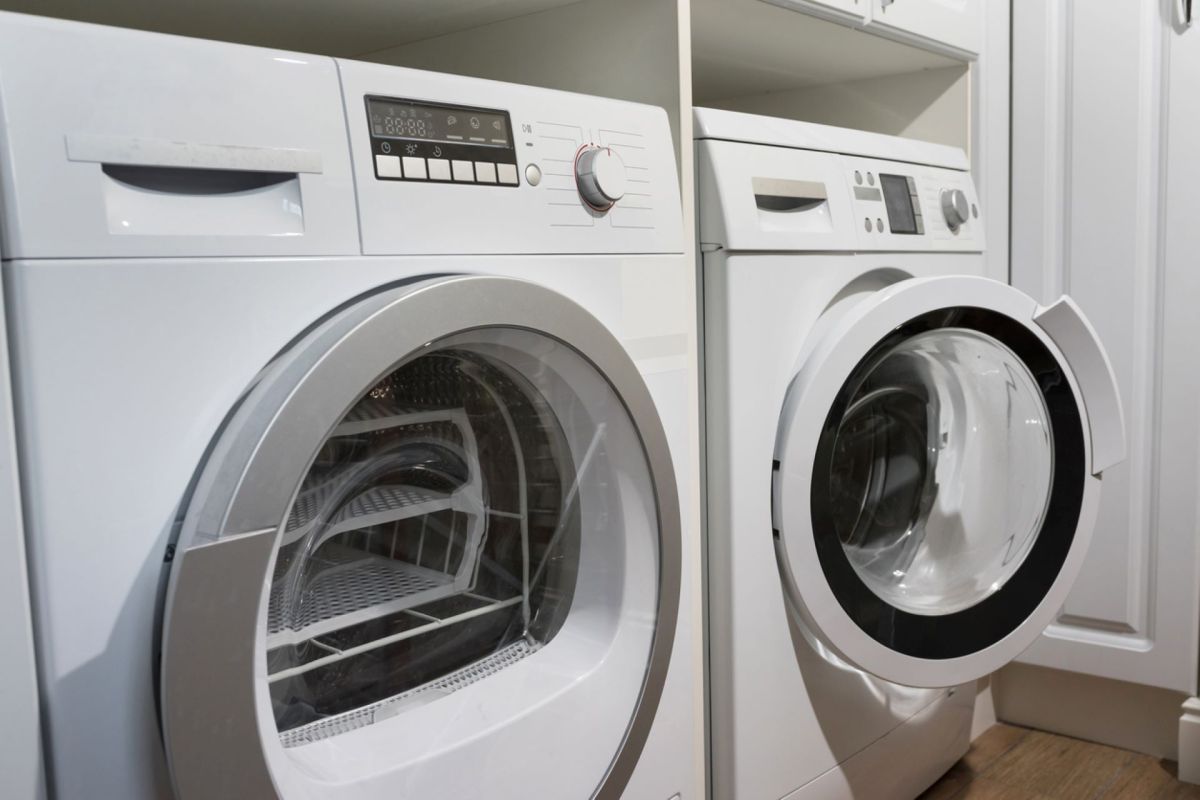Americans do a lot of laundry — at least five loads per household each week, according to some estimates. But even though we wash our clothes consistently, that doesn't mean we're always doing it right.
And the mistakes we're making could be costing us hundreds of dollars more than we need to be spending on our laundry.
The good news, though, is that there are some incredibly easy changes we can make to our routines that will save us absurd amounts of cash — all without having to buy a new washer or dryer.
Following these five steps can lengthen the lifespan of your clothes, provide serious payouts (almost $300 a year), and even help the planet in the process.
1. Wash your clothes on cold
Nearly 90% of the energy a washing machine uses is for heating the water.
This means by just turning that knob to cold you can dramatically reduce your energy costs from your laundry machine. Washing on cold just 80% of the time could save you nearly $200 every year.
So, unless you're dealing with some serious stains, turn that knob. Plus, making this swap could keep 850 pounds of carbon pollution out of the air annually. It's one of the easiest high-impact changes you can make to protect your wallet and the planet.
2. Upgrade from dryer sheets to dryer balls
Dryer sheets are popular because they purport to make your clothing softer. The truth is, though, they don't actually soften your clothes, but instead coat them with chemicals that make them feel softer and reduce static (according to multiple sources).
These chemicals aren't great for your health — they can irritate your skin or your asthma symptoms — while also being bad for the environment, and the sheets fill up our landfills.
Dryer balls, on the other hand, represent a cheaper and more sustainable option. These often-wool balls, which can sell for less than $10, can be reused literally hundreds of times, without adding any harmful chemicals to your clothes or the environment.
If you make this swap, you could save about $180 over 10 years while still keeping your clothes soft and static-free.
3. Basic dryer maintenance
This can be as simple as cleaning your lint filter more regularly. According to Energy Star, keeping the lint filter clean will improve air circulation in addition to increasing your dryer's efficiency.
If you improve your dryer's efficiency by 10% with this basic maintenance, you'd save $10 a year while keeping a whopping 240 pounds of harmful pollution out of the air annually.
4. Upgrade your detergent
Laundry detergent doesn't need to come in a massive plastic jug. Besides taking up tons of space, and sometimes costing more, these plastic products probably aren't getting recycled, even when you put them in the correct bin.
Powdered laundry detergents can solve all of these problems, keep your clothes clean, and save you about $30 a year, while freeing up more space in your laundry area.
5. Ditch the fabric softener
Like dryer sheets, most fabric softeners have harmful chemicals that aren't necessary to keep your clothes fresh and clean. These softeners are coated with petroleum-based products that can clog up your washer, contribute to or exacerbate eczema, and pollute our environment.
Using white vinegar instead of fabric softener could save you close to $35 every year while keeping gross chemicals away from your washer, your family, and the environment.
Better than all of this could certainly be hand-washing and line-drying, the latter of which is especially doable (even in the winter, with some tips) and not necessarily more time-consuming. But it does require more space and commitment, while the five tips above should really be easy habit changes that can make a significant impact on the amount of money and resources you're using to get those clothes clean.
Join our free newsletter for easy tips to save more, waste less, and help yourself while helping the planet.







